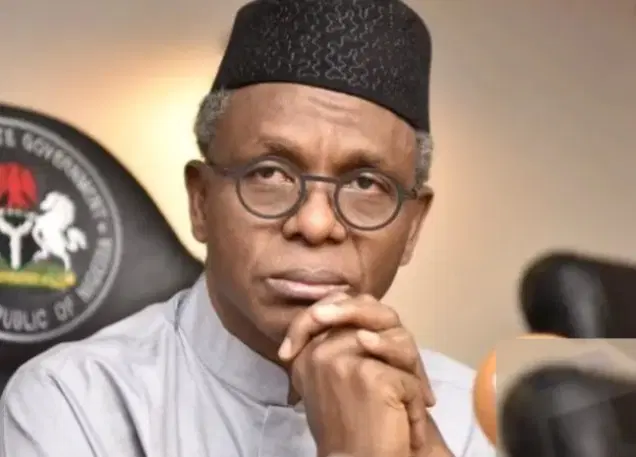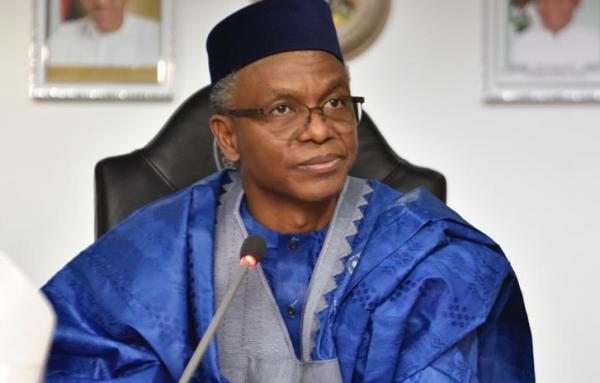
The promise by the Governor of Central Bank of Nigeria, CBN, Mr. Godwin Emefi ele that Nigeria will continue to meet matured fi nancial obligations to foreign investors and her international trading partners, was re assuring. Emefi ele who disclosed this during a meeting with members of the German Business Delegation at the CBN Head offi ce recently said Nigeria has been going through economic crisis, due mainly to shocks arising from failing global oil prices resulting to severe shortfall in for eign exchange revenue. The CBN governor said given the situation, the country is left with no option than to diversify the production base of the Nigerian economy and to curtail frivolous importation. According to the leader of the visiting team, Vice Minister and Member of Parliament, Mr Uwe Beckmeyer of German Federal Ministry for Economic Affairs and Energy, there is the need to tackle SMEs challenges in sourcing inputs for their production and that German companies doing business in Nigeria would appreciate to be assured of the certainty in areas of currency control as it affects profi t remittances Many believe that diversifi – cation remains key in bringing the nation’s economy out of the woods, especially when importers of essential raw material and Small and Medium Enterprises, SMEs,have foreign exchange to source inputs for their production. Experts have said that the Bureau de change, BDC, industry remains critical sector in economic “SMEs both in the formal and informal sectors employ over 60 per cent of the labour force in Nigeria. More so, 70 per cent to 80 per cent of daily necessities in the country are not high technology product, but basic materials produced with little or no automation said a Lecturer in Business Administration, School of Business, Covenant University, Ogun State, Dr Motilewa, Deborah in a report. It then means that an effective collaboration with BDCs and fi scal and monetary authorities to channel over $27.8bn for eign reserves to domestic trade would make a positive impact in the economy. The state of economy of every nation is a function contribution from different segments and industries to the Gross Domestic Product, GDP, pool. Globally, BDC operators have remained critical agent of development and economic growth transformation for countries. In Nigeria, BDCs are not just an a critical factor in the CBN’s plan to achieve price and exchange stability but have remained one of the major contributors to government’s revenues.
With over N250bn worth of investments in the economy, the BDC sector not only enhances employment generation, but remains one of the major employers of labour, employing over 200, 000 persons. The sector has also contributed to the CBN’s revenues streams through one per cent commission charged on dollar sale to operators. The over 3,000 BDC operators in the country have especially since the CBN started direct sale of dollars to the industry in 2006 helped in the implementation of the historic convergence of exchange rates for the fi rst time on July 6th 2006 which have so far led to increased investment spending in the economy. That explains stakeholders’ worries when regulatory and government policies in recent months did not favour the continued collaboration this very important sector. Emefi ele had last January announced a new foreign exchange, forex, policy that includes the stoppage of weekly dollar sales to BDCs.
“The bank ,CBN, would henceforth discontinue its sales of foreign exchange to BDCs. Operators in this segment of the market would now need to source their foreign exchange from autonomous source. They must however note that the CBN would deploy more resources to monitoring these sources to ensure that no operator is in violation of our anti-money laundering laws,” Emefi ele said at news conference on the review of the contentious forex policy at CBN’s Abuja head offi ce. But the President, Association of Bureau De Change Operators of Nigeria (ABCON) Alhaji Aminu Gwadabe explained that as law abiding citizens and partner in progress with the CBN, the BDC operators respect the decision of the apex bank as the regulator of the banking industry and foreign exchange market where they operate. “While we are not totally surprised by the decision, we however believe there are better ways of addressing the challenges in the foreign exchange market,” he said. He regretted that the BDCs are always blamed whenever there is naira volatility. “Suffi ce to mention that before the CBN started selling dollars to BDCs in 2006, there were about 270 BDCs in the country. Despite the harsh operating environment, these operators were able to survive by servicing their clients,” he said. According to him, the BDC industry was created by the CBN to fi ll a critical gap in the retail segment of the foreign exchange market even as the decision to sell dollars to them was because they have the capacity to counter the effect of the illegal currency traffi ckers and the continued depreciation of the naira in the parallel market. While the BDCs, which remain globally acknowledged sub sector in the fi nancial service sector, operators in the country have put the sudden stoppage of dollar sales to them by the CBN behind them, ABCON and its leadership has continued to seek plausible avenues to deepen dollar liquidity in the market, sustain their members businesses and make their contributions to Nigeria’s economic growth and development. According many experts it would be wrong to say that the BDCs are sabotaging the efforts of the CBN in its effort to stabilise the naira. The experts however said the CBN ought to adopt trade policies which according to them are better tools in discouraging the importation of goods whose import hurt local manufacturers.
A financial analyst and Managing Director, Cowry Assets Management Limited, Johnson Chukwu, said the Central Bank of Nigeria, CBN, has been engaged in aggressive demand management with the disqualifi cation of 41 items from accessing the foreign exchange market so as to keep the naira exchange rate within the N197 to dollar and a band of plus or minus three per cent. He said that trade policies are better tools to use in discouraging the importation of goods whose import hurt local manufacturers. “We have proven cases of successful use of appropriate trade policies to develop specific industries in the country. A classical example is the Cement industry where local manufacture has grown from 2,000 metric tonnes per annum, to more than 40,000 metric tonnes per annum in 15 years. Nigeria has moved from a net importer of cement to a net exporter as a result of targeted use of trade policy in the sub-sector,” he said. Speaking recently at a Bi- Monthly Forum organised by the Finance Correspondents Association of Nigeria, FICAN, Chukwu said the ongoing naira volatility in the parallel market is being triggered by the inability of the CBN to meet legitimate demand for foreign exchange adding that while the regulator has effectively maintained the offi cial exchange rate at N197 to dollar, it has been impossible for the apex bank to meet all legitimate demand at the offi cial window. He said a backlog of unmet demand which has spilled over to the shallow parallel market is driving down the naira to its current levels.
“With legitimate importers of raw materials and equipment migrating to the parallel market to satisfy their demand, the parallel market has effectively become the ruling market for pricing of imported goods and services within the country, with the exception of refi ned petroleum products, which seem to enjoy some preference in the allocation of forex by the Central bank,” he said. He said the shallowness of supply in the alternative markets and huge demand are already driving importers to a state hysteria, as they seem to be ready to pay any price to meet their demand. For Gwadabe, BDCs can be strengthened to operate across the value chain of the retail foreign exchange sector; remittances and payments space as well as local and international travel insurance brokerage deals. This, he said, could help turn them into a booming industry that can employ more millions of Nigerians. Both the CBN and BDCs, he said, can work also together and fi nd sustainable solutions that can help the country wriggle out of the ongoing forex crisis confronting the economy. “The BDCs do not depend on exchange rate to make profi t and therefore will benefi t nothing from a depreciated naira. Depreciation affects operators’ working capital as they are more interested in turnover than the exchange rate. The BDCs do not also determine exchange rate and the ABCON has continually worked closely with the CBN to ensure that dollar supply increases so as to restore calm in the currency market,” he assured. Analysts have said that the BDCs can explore opportunities in Diaspora remittances. For instance, the World Bank Migration and Remittances Factbook 2016 showed that Nigerians living abroad sent home $20.8bn in 2015. The fi gure, it said, is by far the largest volume of remittances to any country in Africa and the sixth largest in the world.
“The United States is the biggest remittance sending country to Nigeria, followed by the United Kingdom. Nigerians received $5.7bn in remittances sent from friends and family members in the US and $3.7bn from the UK in 2015. Nigeria is also the third largest destination country for migrants from other African nations,” it said. It says a quarter of a billion people around the world are migrants, and over $600bn in remittances are sent annually. The global lender says international remittances to developing countries reached over $441bn in 2015, more than foreign direct investment and trice more than offi cial aid fl ows. It says 34 per cent of all international remittances are sent between developing countries. It disclosed that remittances constitute more than 10 per cent of Gross Domestic Product for 25 countries. It insists that international remittances have been growing steadily and remain stable even during episodes of fi nancial volatility. “In 2015, the number of international migrants surpassed 250 million, a quarter of a billion people, globally. International migrants now represent more than 3.4 per cent of the world’s population. South- South migration is now larger than South-North migration. Over 38 per cent of international migrants have migrated from developing countries to other developing countries. 14.4 per cent of international migrants are refugees,” it said. Speaking on the development, Senior Mobile Analyst at WorldRemit, Alix Murphy, says the World Bank’s latest report shows that countries have now hit two signifi cant milestones – quarter of a billion migrants globally and $600bn of remittances sent annually.
“More than ever, we live in world of mobile and connected people whose fi nancial ties extend across the planet. At WorldRemit we see the technological infrastructure evolving to meet these changing demands – in particular the convergence of mobile connectivity, instant messaging and international money transfers,” she said. She believes that despite being the biggest economy in Sub-Saharan Africa, Nigeria’s financial system is still deeply fragmented, making sending and receiving money very challenging for ordinary Nigerians. Gwadabe said a proposal from ABCON to the CBN, asking the regulator to allow BDC operators operate correspondent bank accounts that would allow currency auctioners receive the average $20.8 billion annual Diaspora remittances. Making BDCs major agents money transfer agents like the Western Union, MoneyGram, among others will enable them achieve the objective. The proposal, which Gwadabe says is still being assessed by the CBN, will enable operators open forex account with Bank Of America or Barclays Bank or any other international bank, through which Nigerians living abroad can send funds home through the foreign bank accounts run by BDCs while the recipients claim their money at home. This practice, when approved, Gwadabe said, would not only boost dollar liquidity in the market, but help the country navigate through raging currency risks. He believes that integrating BDCs into the money transfer business will ease the challenges faced in the industry and deepen Nigeria payment system.






















